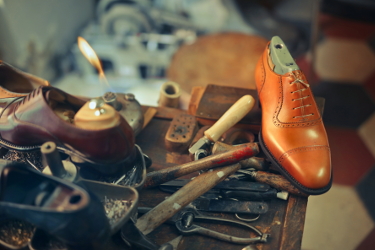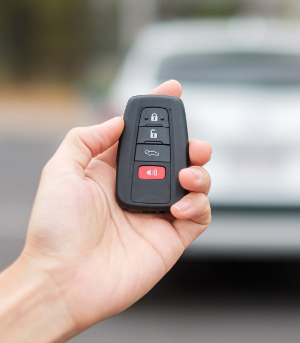What have you got?
There’s a funny scene in The Princess Bride when the main hero has been “mostly dead” for awhile and is slowly recovering. He’s on a castle wall overlooking a huge army of defenders, and he asks his two cohort (a giant who’s not the brightest knife in the drawer) and a revenge-driven Spanish swordsman, to tell him what’s happening in the courtyard.

They tell him there are at least 60 men down there, and they have to get through them to save the princess. They list what they have: the hero’s brain, the swordsman’s steel, and the strength of the giant. It’s not enough. Then one of them mentions a wheelbarrow.
“Why didn’t you list that among our assets?” the hero demands. It turns out that it is pivotal to their successful broaching of the castle gates.
So what have you got?
If your sales are lagging due to the many societal changes that have come about post-pandemic, maybe it’s time to take stock of your assets.
For our heroes, a suicide frontal attack on the guards of the castle was going to be just that—suicide. But with some creative use of their assets (which also included a cloak that could be set afire and not burn the person wearing it) they were able to set the giant on fire, roll him into the guards and save the day.
What do you have that can save the day? What can you put to a fresh purpose and bring in some extra income? It all starts with an asset list.

Your list might look something like this:
- Equipment
- Staff
- Vehicles
- Computers
Some of the things that might come to you with further thought:
- Expertise
- Plant/depot(s) location(s)
- Good reputation
- Community contacts
How can you combine those assets to do something new to supplement your sales?
What’s sitting around?
If you have vehicles and drivers, you have an asset that can be turned to other uses. Can you start up a pick-up-and-delivery laundry service in your area? Can you make deliveries of other things your customers might need? What about renting your vehicles and drivers on designated days to another nearby company that would also give you a percentage of their sales that come in as a result?

If you have staff and a telephone or computers, can you devise a touch-base campaign in which you contact all your customers—not just the “whales”—and see if there are services you can offer them at this time? This is a simple awareness campaign, not a discount give-away. Remind them of your expertise in getting their holiday table linens, decorations and other items ready for entertaining. Let them know you do duvets and other large items, as well as coats, boots, etc.
If you have a location(s), do you have extra space? What about offering storage space for out-of-season wardrobes? Offer to clean and store everything (prepaid) for the off season, and to notify the customer as the new season arrives so they can either pick up their garments or have them delivered. Think through how you want to store them and where. You’ll need to provide an inventory to the customer so they know nothing went astray.

If you have a good reputation and community contacts, how can you work those into extra business? Can you (or a confident staff member) make a presentation at the next Chamber of Commerce meeting about the importance of maintaining garments for the long haul, as a step toward reducing one’s carbon footprint? Can you get information on upcoming colours or styles (easy to do online) and speak at a women’s club meeting or other gathering? Give tips on cleaning and also how to repurpose last year’s wardrobe pieces. The point is to show yourself as an expert and also to make your company top-of-mind for potential customers.
Is this busy work?
Well, it would be nice to be too busy to need to even go through your assets and see which ones are underutilized. But if that is not the case, this is not busy work, it’s work. It’s expanding your mind to look for the next opportunity. It’s making the box a little bigger so you can fit new ideas into it.

A cobbler set up his business in Australia many years go. He repaired and resoled quality footwear. But trends changed, and people began wearing cheaper, more casual shoes. It was not worth it to repair them, when they could easily be replaced.

So the cobbler thought a while, and watched his community to see what the “new need” was. And he saw it right on the street. Everybody was using those beeping key fobs and smart keys to get into their vehicles. He heard they were very pricey to replace at the dealership, so he added lock smithing, key making and smart key replacement to his repertoire.
Now, the lock and key part of the business is far larger than the shoe repair side, though he still offers cobbling as a sideline, rather than abandon his years of expertise in that area. Plus, he’s now the last cobbler in the area, so all work of that type comes to him.
Look for a stop-gap idea can grow into a full time moneymaker. What have you got? Think about it.






